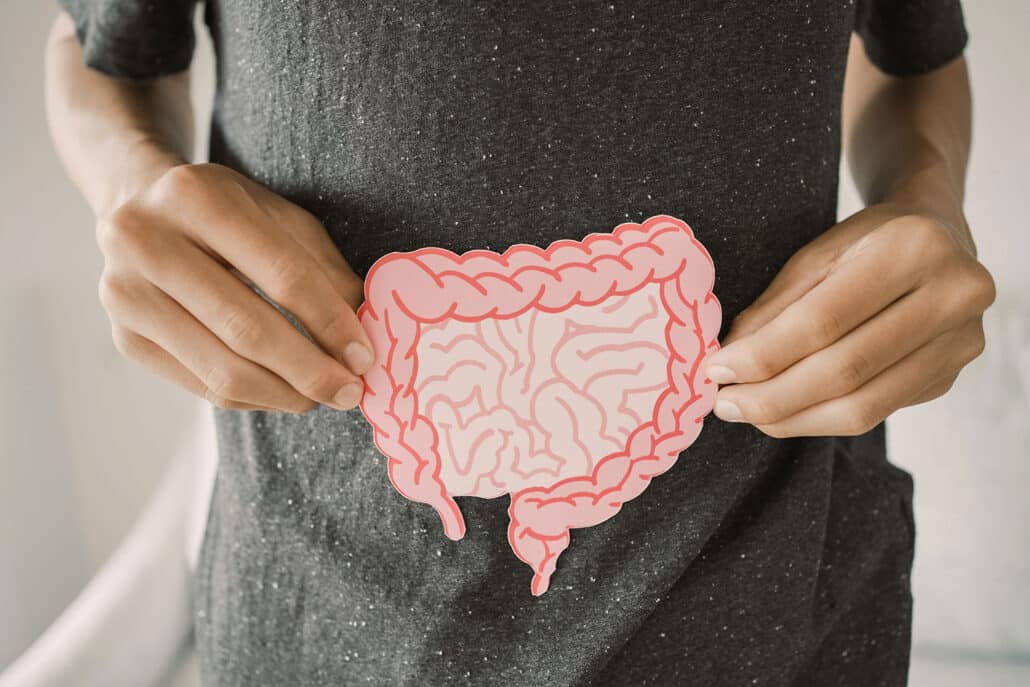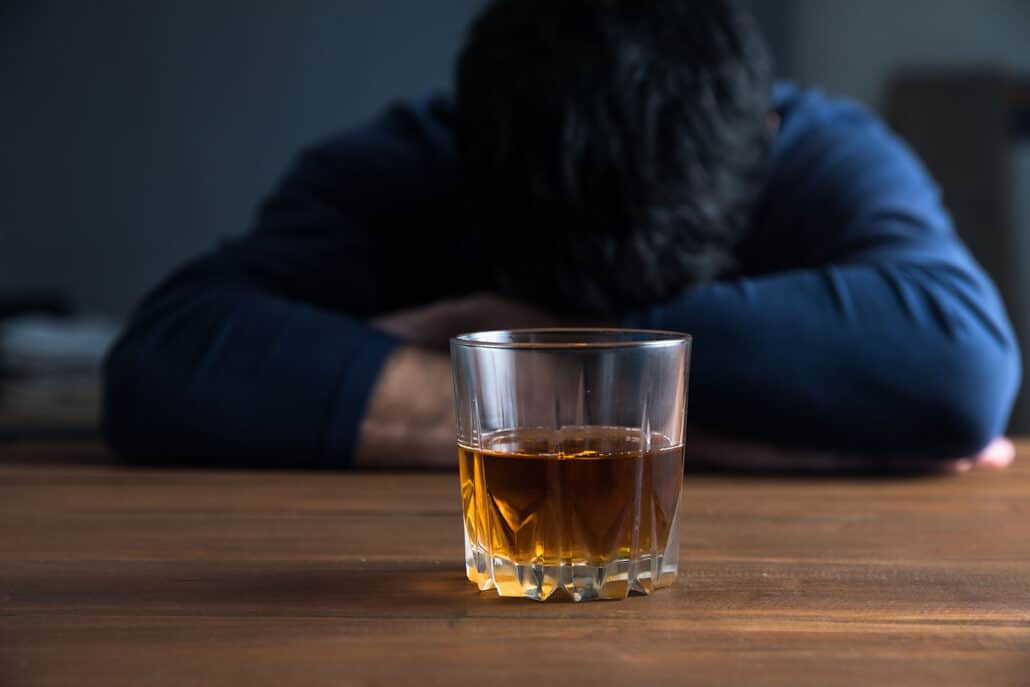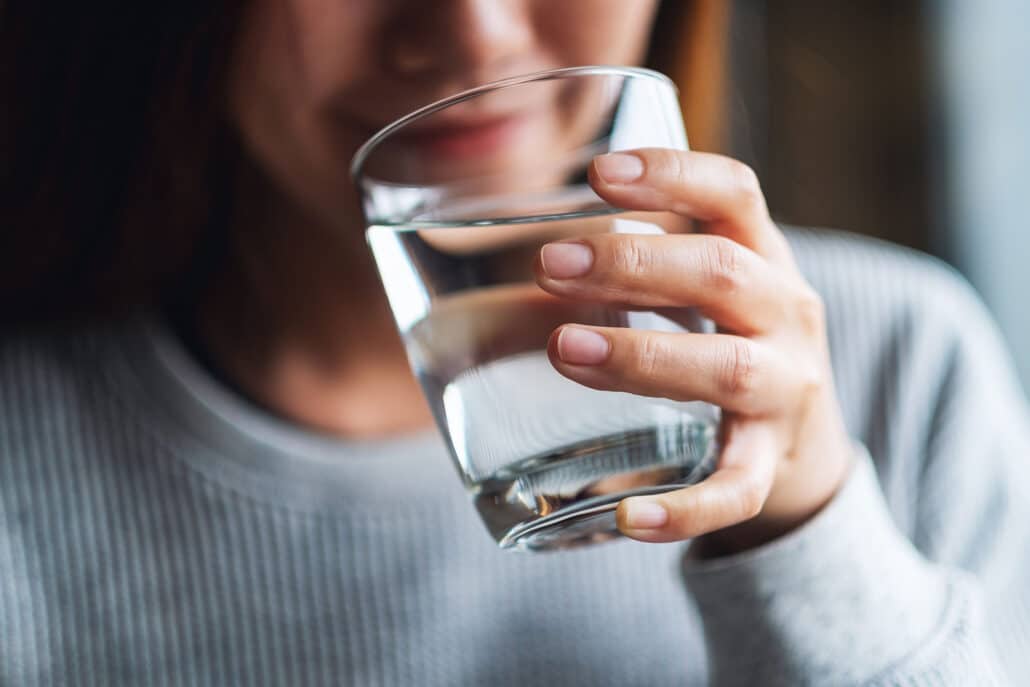Alcohol can take a toll on your digestive system. That’s why understanding how to repair and nurture your gut health afterward can make a significant difference.
So, whether you’ve had one night of drinking or are looking to improve your health after regular alcohol consumption, these evidence-based strategies can help restore your gut’s natural balance.
In this article, we’ll support your journey toward better health by showing you how to restore your gut biome after drinking alcohol.
Table of Contents
- 1 Understanding Your Gut Health Better
- 2 How Does Alcohol Affect Your Gut Health?
- 3 How Do You Know if Alcohol Has Damaged Your Stomach?
- 4 How to Restore Gut Health After Alcohol
- 5 How Long Does the Gut Take to Heal From Alcohol?
- 6 Why Cutting Back on Drinking May Be Better for Your Gut
- 7 How to Gradually Wean Off Alcohol
- 8 Summary: Defeating Alcoholism With a Happy Gut
Understanding Your Gut Health Better
Your gut microbiome consists of trillions of microorganisms living in your digestive system.

These beneficial bacteria help break down food, release essential nutrients, fight harmful organisms, and support your immune system.
When your gut microbiome is balanced, it shows in your overall health. These microbes play crucial roles in digestion, vitamin production, and even supporting mental health through the gut-brain connection.
Research also shows that a healthy gut can lower your risk of developing various conditions, like obesity, heart disease, diabetes, and some mental health issues.
The good news is that your gut microbiome is highly responsive to change. Studies have shown that significant shifts in gut bacteria can occur within just days of changing your diet or lifestyle.
This adaptability means that even if alcohol has disrupted your digestive system, you can take effective steps to restore gut health relatively quickly. You only need to introduce the right foods and habits.
How Does Alcohol Affect Your Gut Health?
Even in relatively small amounts, alcohol consumption can significantly impact your gut health.
Within just 30 minutes of drinking, alcohol begins triggering changes in your digestive system that can lead to both short-term discomfort and long-term health concerns.
Increased Intestinal Permeability
One of the most immediate effects of drinking is increased intestinal permeability, often called ‘leaky gut.’ Alcohol damages the protective lining of your digestive tract which allows bacterial endotoxins to leak into your bloodstream.
This triggers inflammation throughout your body and can weaken your immune system’s defenses.
Dysbiosis
Regular alcohol intake also disrupts your gut microbiome’s delicate balance. Studies show that alcohol can decrease beneficial bacteria like Akkermansia, Roseburia, and Bacteroides while increasing potentially harmful bacteria.
It’s this imbalance, known as dysbiosis, which reduces your gut’s production of butyrate (a compound essential for maintaining intestinal health).
Bacterial Overgrowth
Finally, alcohol can lead to bacterial overgrowth in your small intestine and impair your body’s ability to absorb crucial nutrients. It increases stomach acid production, potentially causing gastritis, heartburn, and other digestive issues.
Over time, excessive alcohol consumption can contribute to more serious conditions like liver disease. It’s closely connected to gut health through what researchers call the “gut-liver axis.”

How Do You Know if Alcohol Has Damaged Your Stomach?
Recognizing the signs of alcohol-treated stomach damage helps you seek timely treatment.
Alcoholic gastritis, otherwise known as the inflammation of your stomach lining caused by regular alcohol consumption, often produces distinct symptoms that shouldn’t be ignored.
The most common sign is a persistent gnawing or burning pain in your upper abdomen that may worsen or improve after eating. You might also experience constant discomfort between your navel and ribs, accompanied by frequent belching, hiccuping, and a bloated feeling after meals.
Many people with alcohol-related gut damage report nausea, vomiting, and a noticeable loss of appetite as well. Some people also feel unusually fatigued or short of breath during physical activity. This could indicate anemia resulting from stomach bleeding—a serious complication of alcoholic gastritis.
Perhaps the most concerning signs are blood in your stool or vomit, which may appear bright red or dark and tarry. These symptoms indicate gastrointestinal bleeding and require immediate medical attention.
If you experience unexplained weight loss, extreme weakness, or persistent digestive issues after drinking, consult a healthcare provider immediately. Your doctor can perform specific tests to diagnose alcoholic gastritis, including breath tests, upper GI X-rays, endoscopy, blood tests, or stool analysis.
Remember: Early detection and treatment of alcohol-related stomach damage can prevent more serious complications like peptic ulcers, gastric polyps, or even stomach tumors. So don’t hesitate to seek medical advice if you notice these warning signs.

How to Restore Gut Health After Alcohol
Rebuilding your gut health after alcohol consumption requires a complex approach. Here are 9 effective strategies to help your digestive system recover:
1. Hydrate Thoroughly
After drinking alcohol, your body needs plenty of water to flush out toxins and rehydrate your digestive tract. Dehydration worsens gut inflammation, so aim to drink at least 8-10 glasses of water daily.
Consider electrolyte supplements to restore minerals lost through alcohol’s diuretic (dehydrating) effect.
2. Embrace Probiotics
Probiotics are beneficial bacteria that can help restore your gut microbiome. Include fermented foods like yogurt, kefir, sauerkraut, and kimchi in your diet. These foods contain live cultures that repopulate your digestive system with helpful microbes.
Probiotic supplements can also be beneficial, but consult a healthcare provider for recommendations suitable for your needs.
3. Add Prebiotics to Your Diet
Prebiotics are fibers that feed the good bacteria in your gut. Consuming foods rich in prebiotics, such as garlic, onions, asparagus, bananas, and whole grains, helps nourish your existing gut flora and encourages microbial diversity.
4. Increase Fiber Intake
High-fiber foods support digestive health by promoting regular bowel movements and feeding beneficial gut bacteria. Focus on fruits, vegetables, legumes, and whole grains to boost your fiber consumption. This helps repair the gut lining damaged by alcohol.
5. Choose Anti-inflammatory Foods
Alcohol triggers inflammation in the digestive tract. Counter this with anti-inflammatory foods like fatty fish (rich in omega-3s), turmeric, ginger, leafy greens, and berries. These foods help reduce intestinal inflammation and support healing.
6. Avoid Irritants
While recovering, avoid substances that further irritate your gut lining. This includes spicy foods, caffeine, processed foods, and especially NSAIDs like ibuprofen, which can increase intestinal permeability when combined with alcohol.
7. Prioritize Sleep and Stress Management
Quality sleep allows your body to repair digestive tissues. Chronic stress negatively impacts gut health by altering microbiome composition and increasing inflammation. Practice relaxation techniques like meditation, deep breathing, or gentle yoga to support your gut recovery.
8. Consider Digestive Enzymes
Alcohol can impair your body’s natural enzyme production. Digestive enzyme supplements may temporarily help break down food properly while your system recovers.
9. Allow Time for Healing
Understand that gut recovery isn’t immediate. The intestinal lining needs time to regenerate, especially after heavy drinking. Be patient and consistent with your healthy habits.

How Long Does the Gut Take to Heal From Alcohol?
The recovery time for your gut health after alcohol consumption varies depending on several factors, including how much and how frequently you drink, your physiology, and existing health conditions.
For occasional drinkers, minor gut issues might resolve within a few days of abstinence. However, those with more regular alcohol consumption may need weeks for their gut lining to fully repair.
As for individuals with chronic alcohol use, the recovery process may be longer. It might take months for the gut microbiome to restore its balance and diversity.
Interesting fact: Studies have shown that women may experience more significant gut disruption from alcohol than men.
Why Cutting Back on Drinking May Be Better for Your Gut
Reducing your alcohol intake offers significant benefits for your gut microbiome and overall digestive health. Studies show that even short periods of alcohol abstinence can lead to remarkable improvements in gut barrier function.
For example, research has found that individuals with alcohol-related intestinal permeability experienced complete recovery of their gut barrier function after just three weeks without alcohol.
When you cut back on drinking, you allow your gut microbiota to reestablish its natural diversity. This restoration helps strengthen your immune system, improve nutrient absorption, and reduce inflammation throughout your body.
Fact: Many people who participate in alcohol-free challenges like “Dry January” report noticeable improvements in their digestion, including reduced bloating, more regular bowel movements, and fewer instances of acid reflux.
What Is Considered Moderate vs Excessive Drinking?
According to the National Institute on Alcohol Abuse and Alcoholism (NIAAA), moderate drinking is defined as up to 3 drinks a day for women and up to 4 drinks per day for men.
Excessive drinking includes binge drinking, which is defined as consuming 4 or more drinks for women or 5 or more drinks for men within a two-hour period.
Heavy drinking is considered binge drinking for 5 or more days within a 30-day period. Extreme binge drinking involves 8 or more drinks for women or 10 or more drinks for men in one session.

How to Gradually Wean Off Alcohol
- Start by setting clear, realistic goals—perhaps reducing your weekly drinks by 25% initially, then gradually decreasing further over time.
- Try alternating alcoholic beverages with water or non-alcoholic alternatives during social occasions. Doing so helps maintain hydration, which supports gut health.
- Identify your personal triggers for drinking and develop strategies to manage them. For some, this might mean finding new ways to relax after work or activities that don’t center around alcohol.
- Consider tracking your alcohol intake in a journal or app to maintain awareness of your consumption patterns.
Summary: Defeating Alcoholism With a Happy Gut
Now you understand how alcohol affects your digestive system. When you implement strategies like proper hydration, probiotics, and anti-inflammatory foods, you can help your gut microbiome recover and thrive.
Remember that healing takes time, but even small reductions in alcohol intake can improve your gut health, overall well-being, and quality of life.
Need help on your path to recovery? At Long Island Interventions, we offer compassionate, discreet treatment and supportive therapies for people struggling with alcoholism and other substance use disorders. Contact us today to learn how we can support your journey.
Published on: 2025-04-01
Updated on: 2025-04-06

